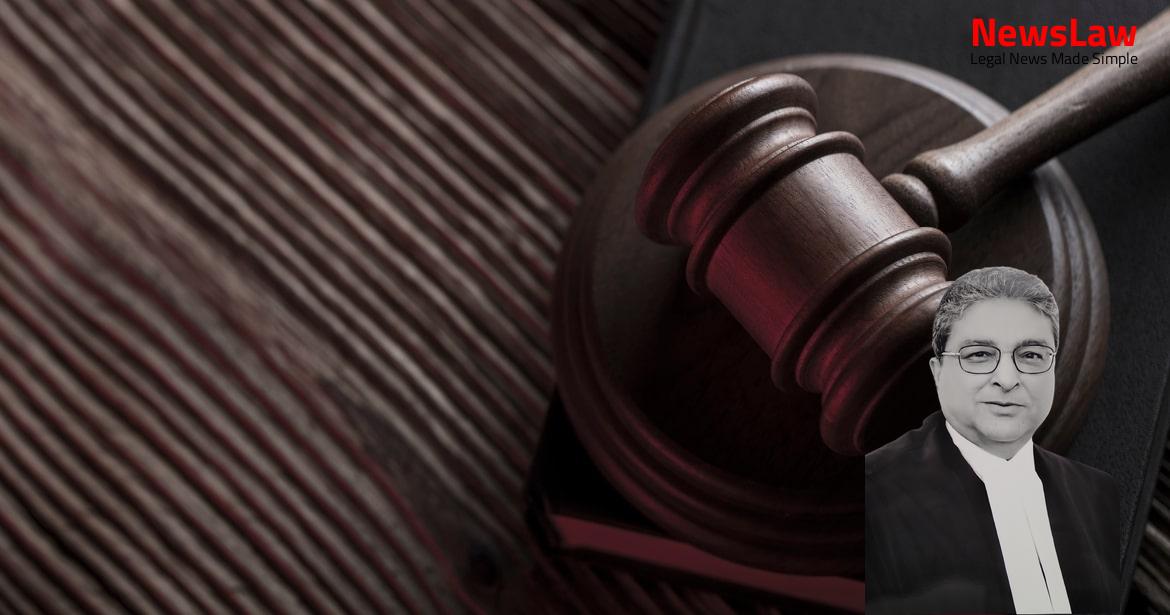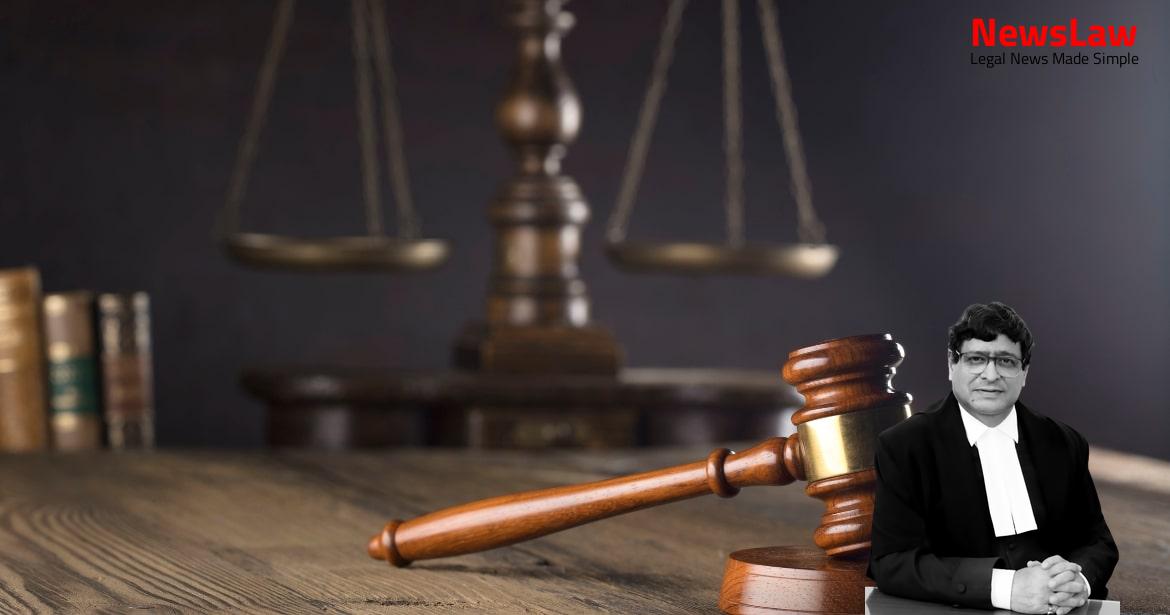In a significant ruling, the Supreme Court of India delivered a judgment regarding legal representation in wilful defaulter cases. The case of State Bank of India v. M/s. Jah Developers Pvt. Ltd. brought to light the debate on the right to legal representation. The decision is pivotal in clarifying the stance on this matter within the context of wilful defaulters and the financial institutions involved.
Issue
- The issue in the present appeals is whether a person declared a wilful defaulter under RBI Circulars is entitled to legal representation.
- The RBI Circular dated 01.07.2013, known as the ‘Master Circular on Wilful Defaulters’, applies to scheduled commercial banks and All India Notified Financial Institutions.
- The question pertains to the right of legal representation before a wilful defaulter declaration is made by the RBI.
Also Read: Judgment on Contract Dispute: PSA Mumbai Investments PTE. Ltd. v. Jawaharlal Nehru Port Trust
Arguments
- Shri Tripathi argued that adjournments should not be granted and a maximum period of half an hour for argument may be given in wilful defaulter cases.
- He emphasized that the borrower may not be competent to represent themselves, leading to issues of discrimination.
- Shri Tripathi supported the Delhi High Court’s judgment in State Bank of India v. M/s. Jah Developers Pvt. Ltd. and Ors., LPA No 113 of 2015.
- He pointed out that the Bombay and Calcutta High Courts held a different view on legal representation, but the Delhi High Court’s view should prevail.
- Shri Tripathi’s submission was backed by Shri Rakesh Kumar, the advocate for the respondent in Civil Appeal arising out of SLP (C) No 10008 of 2017.
Also Read: Landmark Judgment: Abhyudaya Co-operative Bank Ltd. vs. Guravs
Analysis
- The mechanism for identifying and reporting instances of wilful default involves a Committee of higher functionaries headed by the Executive Director and consisting of two GMs/DGMs.
- The decision to classify a borrower as a wilful defaulter should be supported by evidence and well-documented, clearly stating the reasons for the classification as per RBI guidelines.
- The borrower must be informed about the proposal to classify them as a wilful defaulter and provided with an opportunity to make representations.
- Consequences of being classified as a wilful defaulter include being barred from institutional finance for 5 years and restrictions on obtaining additional facilities from banks/financial institutions.
- Legal assistance may be essential for the protection of the fundamental right to life and personal liberty guaranteed by Article 21 of the Constitution.
- The right to consult and be defended by a legal practitioner may be denied to a person detained under preventive detention laws.
- Lawyers do not have a place in proceedings before the Advisory Board, as seen in the Nand Lal Bajaj case.
- The right of representation by a lawyer is not considered a part of natural justice, as per the J.K. Aggarwal case.
- The right to be represented through counsel or agent can be restricted by statute, rules, or regulations.
- There is no absolute right to representation in domestic enquiries as a part of the right to be heard under the principle of natural justice.
- A delinquent may not have the right to be represented by a lawyer in a domestic/departmental inquiry unless provided for by specific rules.
- The law in India does not concede an absolute right of representation as an aspect of the right to be heard.
- The right to representation through someone can be a restricted or controlled right as per legal provisions.
- The right to be represented by counsel or agent is not an absolute right and can be controlled by law or regulations.
- The Delhi High Court’s judgment concluded that in-house committees can be considered as tribunals, allowing lawyers to represent clients.
- However, it is argued that natural justice is flexible and does not guarantee the right for a lawyer to appear before in-house committees.
- The Revised Circular dated 01.07.2015 limits oral hearings to the First Committee at the initial stage, if deemed necessary.
- The Revised Circular replaces the earlier Master Circular, providing discretion to the First Committee for a personal hearing.
- The Review Committee under the Revised Circular is entirely in-house.
- The judgment questions the necessity of lawyers before the committees under the Revised Circular, as they are not considered tribunals with statutory judicial power.
- Legal complexity and evidence cross-examination are not prevalent in these committee proceedings, diminishing the need for legal representation.
- The Revised Circular’s scheme does not empower in-house committees with judicial authority, implying no right for lawyers under Section 30 of the Advocates Act.
- The High Court’s decision was influenced by misconceptions like physical handicaps of individuals, misleading the conclusion of statutory power vested in the committees.
- Oral hearings are not obligatory under the Revised Circular, as evidenced by cases where written submissions suffice for decision-making.
- The criteria for identifying wilful defaulters as outlined in the Revised Circular emphasize individual factual assessments rather than legal representations.
- Statutory adjudication power is crucial for defining a tribunal, which the in-house committees lack, precluding the necessity for legal practitioners.
- The findings of legal representation were based on irrelevant factors, that do not impact the core decision-making process within the committees.
- The Master Circular incorporates similar definitions and identification mechanisms for wilful defaulters, maintaining consistency in the process.
- The judgment highlights the distinction between bodies vested with court-like features and actual tribunals, emphasizing the lack of statutory authority in in-house committees.
- Decision-making without oral hearings is feasible in many scenarios, reinforcing the importance of written submissions and factual considerations in reaching conclusions.
- The First Committee, as per the Revised Circular dated 01.07.2015, must provide its order to the borrower promptly after making the decision.
- The borrower has the right to make a full representation on facts and law within 15 days of the preliminary decision of the First Committee.
- Declaration of a person as a wilful defaulter under Article 19(1)(g) directly impacts their fundamental right to carry on business.
- Once declared a wilful defaulter, the individual faces immediate restrictions such as no additional facilities from banks/financial institutions, being barred from institutional finance for five years, and limitations on acting as a promoter or director in any borrower company.
- Under Section 29A of the Insolvency and Bankruptcy Code, 2016, a wilful defaulter cannot be a resolution applicant.
- Given the severe consequences of being declared a wilful defaulter, it is necessary to interpret the Revised Circular in a reasonable manner.
Also Read: Supreme Court Judgment: Review Petition in RPC Aspect Case
Decision
- Set aside impugned judgment
- Allow appeals
- Review Committee to pass reasoned order on representation
- Order to be served on borrower
- Borrower can represent against order within 15 days
- Incorporate steps from earlier Master Circular into Revised Circular
Case Title: STATE BANK OF INDIA Vs. M/S. JAH DEVELOPERS PVT. LTD.
Case Number: C.A. No.-004776-004776 / 2019



